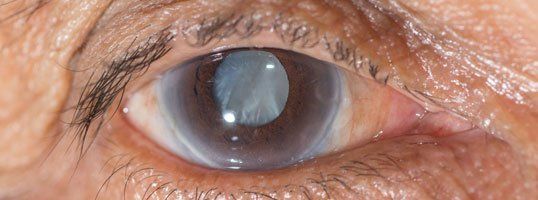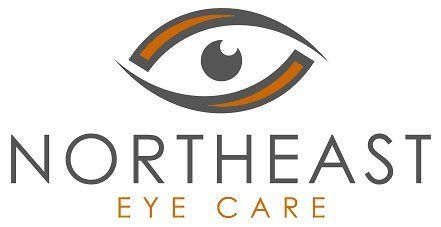Supporting copy for the Request Service
call out button.
1-800-521-3266
Pender 402-385-8972
West Point 402-372-3266
Oakland 402-380-9818
Ocular Diseases
Managing Ocular Diseases
At Northeast Eye Care, we make it a policy to ensure that all staff members are up to date on the latest technology and techniques to make your visit as comfortable and effective as possible. We know that as optometric technology changes, it is even more important to select an eye doctor who has all the right optometry qualifications and follows the latest developments in eye care.
Utilizing cutting-edge technology, we are diagnosing and managing — with greater precision — diseases like cataracts, glaucoma, macular degeneration, and conjunctivitis. Earlier and more precise diagnosis means earlier treatment and better outcomes. We are taking an aggressive approach to diseases that previously had few treatment options. Great advances have been made in the treatment of these diseases.
Cataracts
A cataract is an affliction of the eye that results in the clouding of the lens of the eye. Cataracts prevent clear images from appearing on the eye’s retina, which causes mild, moderate, even severe blurred vision. Typically an eye disorder associated with aging (over half of the people in America over age 80 have either had a cataract or cataract surgery), cataracts generally occur later in life as the lens structure within the human eye changes and gets older.
During the evaluation of your eye health, we will carefully examine your lens for signs of cataract formation. If a cataract is noticed and the clouding is causing visual disruption, the optometrist will refer you to a trusted and respected surgeon for surgery, which is the only known cure for cataracts. Northeast Eye Care will be there for you to provide pre and post-cataract surgery care.
Glaucoma
Glaucoma is the generalized name for a group of eye diseases that damage the optic nerve of the eye and prevent the eye from sending accurate visual information to the brain. Only a comprehensive eye exam can reveal whether or not you have glaucoma. Increased pressure inside the eye is often a key indicator of glaucoma, though not exclusively so. Eye doctors can use a number of tests for eye pressure, but will, by default, check for signs of glaucoma as part of a detailed examination of the optic nerve.
Depending on the severity of the disease, treatment for glaucoma can involve the use of medications, conventional (bladed) surgery, laser surgery, or a combination of these treatments. Medicated eye drops aimed at lowering the pressure are usually tried first to control glaucoma. Because glaucoma is often painless, people may become careless about strict use of eye drops that can control eye pressure and help prevent permanent eye damage. In fact, non-compliance with a program of prescribed glaucoma medication is a major reason for blindness resulting from glaucoma.

Macular Degeneration
Macular degeneration is a thinning of the tissues of part of the eye called the macula retina due to the body's natural aging process, which causes slow, progressive vision loss.
There are two types of macular degeneration: dry and wet. The most common is dry macular degeneration, in which vision loss is usually gradual. Vision loss in the wet type of macular degeneration is caused when abnormal blood vessels form in the back of the eye. This is a more serious condition that causes rapid and severe vision loss. Treatment with a laser can sometimes help, but, in a few years, the end result is generally dismal. Until now, there has been no really effective therapy other than supportive anti-oxidant vitamins and leafy green vegetables.
There are two types of macular degeneration: dry and wet. The most common is dry macular degeneration, in which vision loss is usually gradual. Vision loss in the wet type of macular degeneration is caused when abnormal blood vessels form in the back of the eye. This is a more serious condition that causes rapid and severe vision loss. Treatment with a laser can sometimes help, but, in a few years, the end result is generally dismal. Until now, there has been no really effective therapy other than supportive anti-oxidant vitamins and leafy green vegetables.
The best way to prevent these diseases and others is to visit the Northeast Eye Care regularly for comprehensive eye exams. To schedule your next eye appointment, please call our office at 1-800-521-3266.
Schedule Your Appointment Today at Any of Our Three Convenient Locations!
West Point: 402-372-3266
Pender: 402-385-8972
Oakland: 402-380-9818
When you buy your new glasses from us, you will get a 1-year frame warranty and a 1-year anti-reflective coating warranty.
1-800-521-3266
About Northeast Eye Care
Your neighbors in West Point, NE and the surrounding areas have trusted Northeast Eye Care with the health of their vision since we opened in 1951. Visit us for expert vision care and quality glasses and contacts.
We are a family-owned and operated eye care center that provides an extensive selection of frames from around the world.
Three Convenient Locations
Northeast Eye Care
101 W. Decatur St.
West Point, NE 68788
402-372-3266
Open on Tuesdays in Pender
402-385-8972
Open on Wednesdays in Oakland
402-380-9818

Privacy Policy
| Do Not Share My Information
| Conditions of Use
| Notice and Take Down Policy
| Website Accessibility Policy
© 2024
The content on this website is owned by us and our licensors. Do not copy any content (including images) without our consent.
